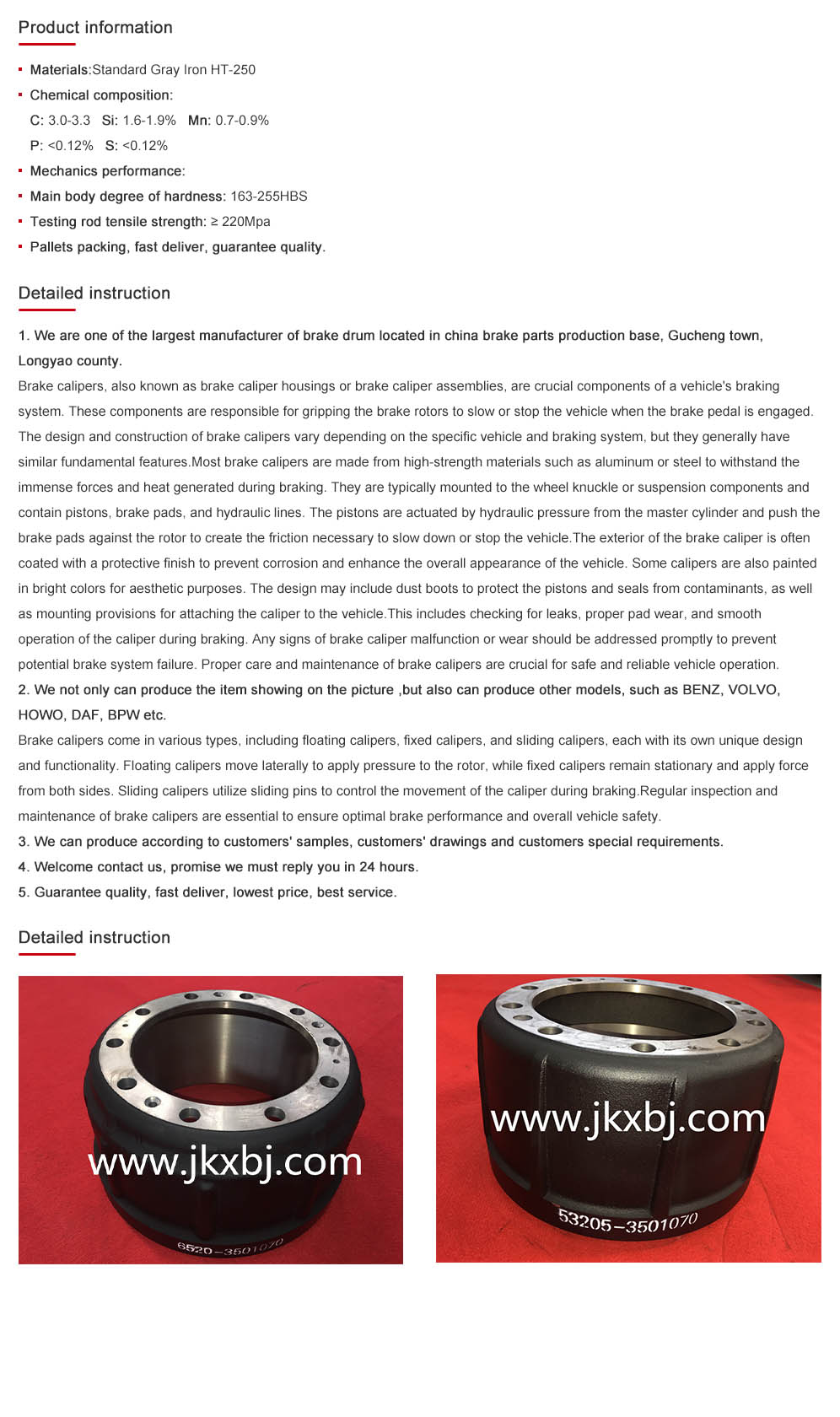Nov . 04, 2024 07:55 Back to list
scrap brake drum
Understanding Scrap Brake Drum Importance, Recycling, and Environmental Impact
Brake drums are vital components of a vehicle’s braking system, providing reliable stopping power. However, as vehicles age or get involved in accidents, they may require replacement, leading to a significant number of scrap brake drums. The handling and recycling of these scrap components are essential for several reasons, including safety, environmental sustainability, and resource conservation.
When a brake drum becomes worn out, it can lead to decreased braking efficiency, posing serious safety risks. Therefore, it is crucial for vehicle owners and repair shops to swiftly remove and replace these parts. Once removed, the discarded drums typically end up as scrap metal. Rather than allowing these metal pieces to languish in landfills, it is far more beneficial to recycle them. Recycling not only reduces waste but also recovers valuable materials that can be repurposed for new manufacturing processes.
The recycling process for scrap brake drums involves several key steps. Initially, the drums are collected and sorted based on material composition. Most brake drums are made from cast iron, which is highly recyclable. After sorting, they undergo a cleaning process to remove any contaminants, such as grease and debris. Once clean, the metal is melted down in a furnace. The molten metal can then be cast into new parts, including, potentially, new brake drums, thereby closing the loop in the recycling process.
scrap brake drum

From an environmental standpoint, recycling scrap brake drums offers significant benefits. The extraction and processing of raw materials for new metal production can be highly energy-intensive and environmentally damaging. By recycling, we reduce the demand for new raw materials, conserve natural resources, and lower greenhouse gas emissions associated with mining and smelting. In fact, recycling iron and steel can save up to 74% of the energy required to produce these metals from virgin ore.
Moreover, the recycling of scrap brake drums contributes to the circular economy, where materials are reused and repurposed rather than discarded. This shift not only conserves resources but also fosters economic growth by creating jobs in recycling and manufacturing sectors. Communities that invest in recycling initiatives often experience broader economic benefits, including reduced waste management costs and improved public health outcomes.
To conclude, the treatment and recycling of scrap brake drums are crucial for vehicle safety and environmental health. By promoting recycling practices, we can reduce waste, conserve resources, and minimize the environmental impact of our automotive industry. It encourages vehicle owners and businesses to be responsible in their disposal practices, ultimately leading to a more sustainable future. Embracing these practices not only benefits us today but also ensures a cleaner planet for future generations.
-
Your Brake Drum Man: Premium & Reliable Brake Drums for Sale
NewsAug.18,2025
-
ROR Web Development: Build Fast, Scalable, Secure Apps
NewsAug.17,2025
-
Scania Brake Drums: OEM Quality for Optimal Safety & Durability
NewsAug.16,2025
-
R.V.I: Advanced Remote Visual Inspection for Precision
NewsAug.15,2025
-
Discover HYUNDA: Innovative Vehicles, Equipment & Solutions
NewsAug.14,2025
-
R.V.I: Unlock Advanced Insights & Real-time Performance
NewsAug.13,2025
